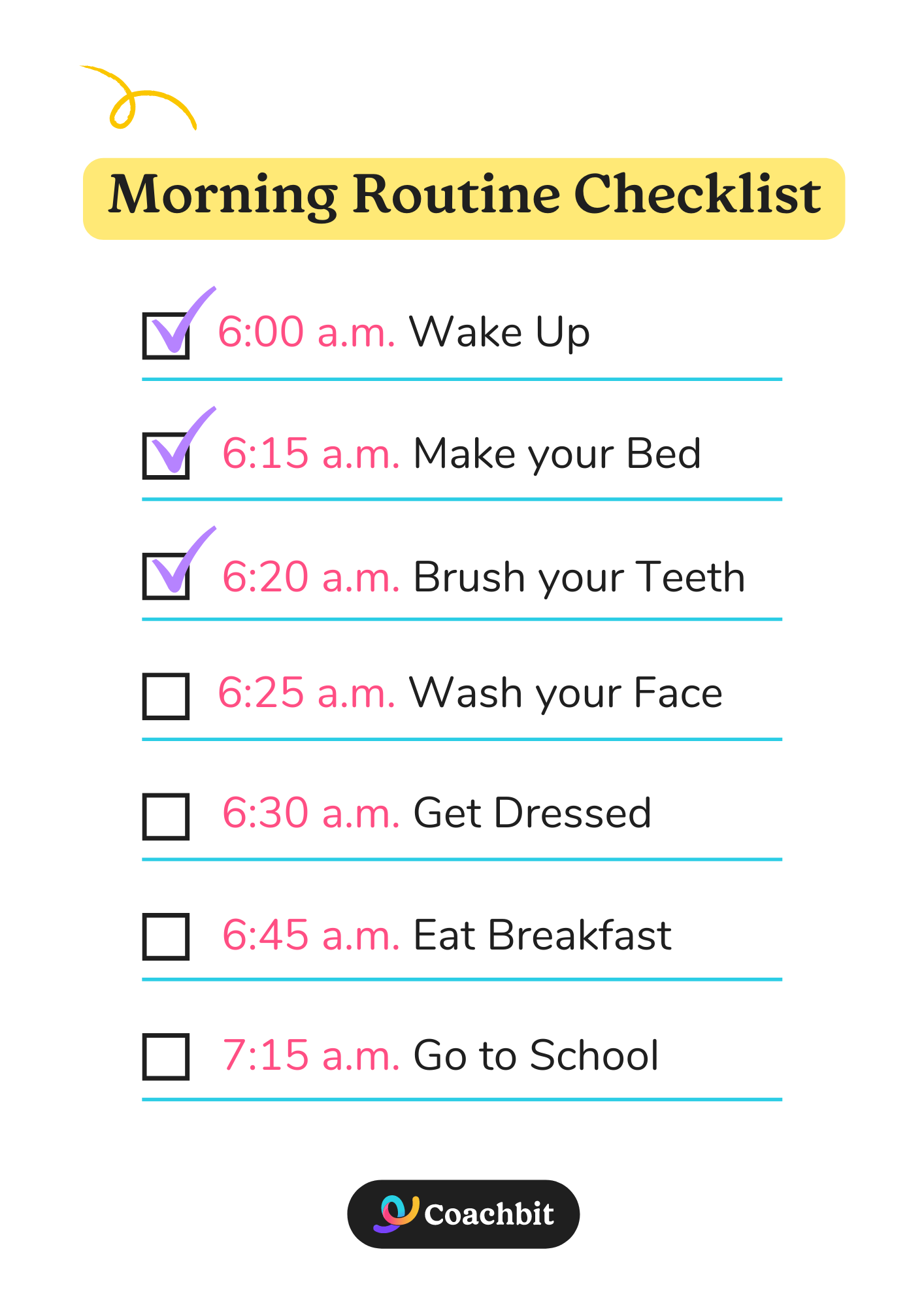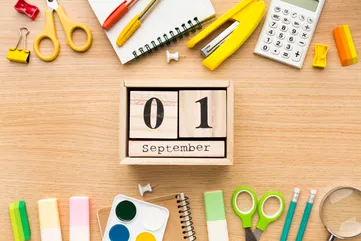_1YpUG3.webp)
Executive functioning refers to a cluster of processes in the brain. They help us manage our time, regulate our emotions, and monitor our behavior. We start developing these skills in early childhood, and they continue to mature into our twenties.
Many kids and teens struggle with executive functioning skills, and unfortunately, most schools do not provide children with the necessary skill training and support they need. Children are taught what to learn and not how to learn.
What is Executive Functioning Coaching?
Executive functioning coaching focuses on cultivating skills such as planning, organization, sustained attention, prioritization, and task persistence. It has grown in popularity, and research on the effectiveness of ADHD and executive functioning-focused coaching has shown positive results.
In a traditional setting, a coach would meet with a client in person. The coaching process usually begins with an intake session to determine the client’s situation and needs. This session is generally followed up by weekly or monthly meetings - depending on the client's needs and financial circumstances.
During coaching, the coach and client establish achievable goals and learn the practical skills and strategies required to achieve them. Most importantly, coaches hold clients accountable for their plans and provide a space for reflection, discussion, and feedback.
Does my Child Need an Executive Functioning Coach?
If your child exhibits any of the following signs, it’s likely that they struggle with their executive functioning and could use the support of an executive functioning coach:
- Disorganization: Consistently has a messy space, backpack, desk, or bedroom.
- Poor time management: Doesn’t finish assignments on time, is constantly late, and loses track of time.
- Task initiation: Has trouble starting tasks like homework, procrastinates, and does things at the last minute (or not at all).
- Focus: has difficulty sustaining attention on a task, e.g., completing their homework, studying for a test, or finishing up their chores.
To support your child’s executive functioning skills, a coach can introduce new habits and routines and hold them accountable for completing them.
In-Person vs. Online Executive Functioning Coaching
During the covid-19 pandemic, many executive functioning coaches had no option but to move their in-person coaching sessions online. Since then, traditional coaching now commonly takes the form of video calls, emails, and texts.
Most coaches offer weekly or monthly sessions, often charging between $200 and $400 an hour. Recently parents have questioned the effectiveness (and costs) of these weekly online sessions for their kids.
Think about it - meeting with a kid or teen (who already struggles with prioritizing tasks and getting easily overwhelmed) once a week or a month, and giving them a month’s worth of homework or advice, just doesn’t make sense.
This problem with the traditional life coaching method led to the emergence of more suitable online coaching solutions for kids, offering shorter daily check-ins with coaches and greater accountability and support.
Recognizing this need, the founders of Coachbit created a mobile app where kids and teens can check in with their coach daily and develop study skills and routines in small steps. This has shown excellent results for kids facing challenges with executive functioning.
Does Executive Functioning Coaching Really Work?
In 2013 and 2011, two research studies analyzed an Executive Functioning Coaching Program provided to college students with ADHD. During the coaching sessions, coaches helped students develop specific goals, and realistic plans, affirmed and supported their emotions and held them accountable to action their plans.
Both studies showed positive outcomes in students’ academic, organizational, and emotional functioning. Specifically, in the 2011 study, students showed improved executive functioning capabilities and reduced academic stress.
Executive functioning and ADHD coaching have been shown to benefit kids, teens, and young adults in many ways. Coaching not only equips them with study skills, test-taking strategies, and personalized routines but it has been shown to boost self-confidence and independence.
Short, daily check-ins with an executive functioning coach can benefit your child in many ways.
Here are just a few.
#1 Improve Time Management
Time management is a popular term, but what does it mean? In essence, it is the ability to use your time effectively and efficiently to complete everything in an allotted time.
For some, this is effortless or intuitive; for others, it can feel like they have too much or too little time in a day.
The good news is that time management is an executive function everyone can learn to cultivate and improve upon. An executive functioning coach can equip your child with strategies to plan and prioritize tasks, set deadlines, and estimate the time required for different activities. This will help them plan their workloads and get those assignments in on time!
Here’s what one of our students had to say about her coaching:
My grades have heavily improved because I have had time to think about what’s coming up, and I have been able to prepare because I write in my calendar what I need to do. - Student of Coach Matthew Currin
#2 Develop Organizational Skills
A part of time management is the ability to plan and organize your time - calendar and to-do lists are tried and tested methods. However, setting them up and remaining consistent is the biggest hurdle many kids face in harnessing the benefits of these time management strategies.
Most executive functioning coaches teach kids the skills to create calendars and lists, but only some can make sure they are using them correctly or are using them at all! That’s where daily coaching works best.
In the Coachbit mobile app, students upload tasks, reminders, and deadlines for school or life-related tasks. Their coach has full access to their calendar, tasks, and due dates, allowing them to keep their kids accountable daily.
One of our students has to say about our task list and calendar features:
Coaching has helped me create small tasks for myself and apply them in my daily life. The first task I was assigned was making my bed and saying an affirmation after I woke up in the morning. Not only has this helped me tremendously in focusing on my goals for the day, but also gives me motivation to start the day off on a positive note. - Student of Coach Ayesha Toyer
#3 Develop Daily Habits and Routines
Perhaps the most important strategy for kids with executive functioning difficulties, and those with ADHD, is learning to create and implement positive habits and routines at home.
An executive functioning coach will help your child create a daily schedule. This usually consists of a morning routine, an after-school or homework routine, and an evening routine.
These routines consist of tiny habits. Breaking larger routines into small habits makes it easier for kids to follow and complete them. In this case, a checklist is an excellent way for kids to visualize the tasks ahead of them and offers a sense of achievement when they can tick items off.
Some coaches will provide kids with printouts or assist them in making their homemade checklists. The Coachbit app has a built-in routine and habit-tracker feature, allowing kids to set up their routines (with funky pictures and colors). Even better, their coach can keep track of their habits and routines and hold them accountable. Our kids love it:
My checklist helped me not freak out in the mornings. Once my checklist was implemented, I was rarely late to leave for school. - Student of Coach Melissa Scheepers
Here’s a Morning Routine Checklist printout you can use for your kids at home:

Final Thoughts
Studies have shown that executive functioning coaching is effective in improving grades and boosting confidence in kids and teens, especially those with ADHD and executive functioning defecits. Coaching provides personalized support and executive functioning skills training is areas such as time management, organization and emotional regulation.
At Coachbit, our coaches work to support their students to develop their executive functioning skills and check in daily to hold them accountable. We've seen incredible results, and are working towards supporting a generation of confident kids, taking control of their education and lives.
Sign up for an executive functioning coach today!
Resources
Parker, David R; Hoffman, Sharon Field; Sawilowsky, Shlomo; Rolands, Laura, “An Examination of the Effects of ADHD Coaching on University Students' Executive Functioning” Journal of Postsecondary Education and Disability Vol. 24, Iss. 2, (2011): 115-132.
Field, Sharon; Parker, David R; Sawilowsky, Shlomo; Rolands, Laura, “Assessing the Impact of ADHD Coaching Services on University Students' Learning Skills, Self-Regulation, and Well-Being,” Journal of Postsecondary Education and Disability Vol. 26, Iss. 1, (Apr 2013 - Jun 2013): 67-81.
How many core habits and skills is your child missing?
Take our short quiz and find out.
Take our quiz


